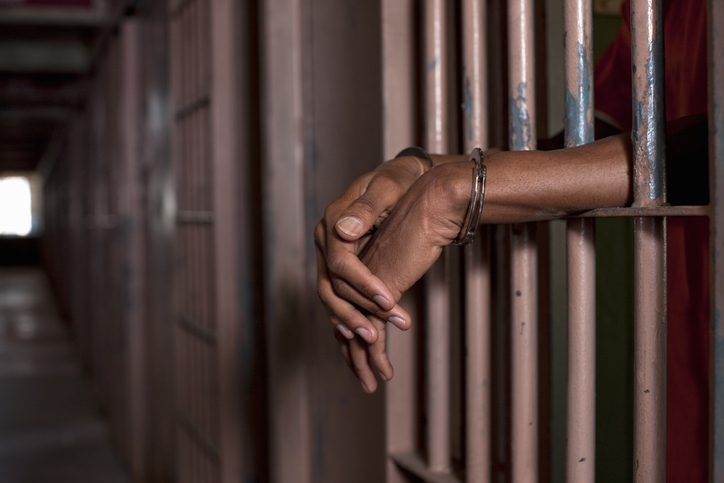
Source: Doug Berry / Getty
According to a study published on JAMA, life expectancy for Black Americans who have spent time in prison is significantly lower than White Americans who’ve spent time in prison.
The study, which was led by Dr. Benjamin Bovell-Ammon, a visiting fellow in general internal medicine at Boston Medical Center, examined more than 7,900 people between 15 and 22 years of age in 1979 and followed them through 2018. About 38% of the study were black. After 35 years, 478 people had been jailed at least once and 818 people had died.
Researchers found that Black Americans who had spent time behind bars were 65% more likely to die prematurely than their white counterparts. In fact, according to the study, jail time had no meaningful impact on the long-term health of whites who were former inmates.
But how can jail shorten the life expectancy for Black Americans, but not whites? To answer this question let’s start off with America and it’s ungodly prison system.
According to Statista, in 2020 there were 658,100 inmates on average each day in local jails in the United States.
The mass incarceration rate in the United States has quadrupled in the last four decades and America has more prison inmates than any country in the world.
Because black Americans are disproportionately affected by mass incarceration, the health issues that accompany prison time will also disproportionately affect Black Americans.
But it’s not just prison statistics are not the only cause for shorter life expectancies for black Americans who have spent time in prison. Some researchers also suspect the stresses of re-entering society also play a part in the long-term health of black former inmates.
“Black people re-entering society after serving their time also must deal with disruptions in their social networks, educational opportunities, and ability to access programs like low-income housing and food stamps,” said lead researcher Dr. Benjamin Bovell-Ammon.
“Black people are less likely to have enough money on hand or enough connections to successfully pick themselves up and become a productive member of society, compared with white people.”
Bovell-Ammon hopes his study will spark policymakers to take calculated and concise actions on criminal justice reform and hopes legislators protect non-violent offenders against the long-term health effects of prison.
SEE ALSO:
White People Who Committed Heinous Crimes And Didn’t Go To Prison
[ione_media_gallery id=”3440564″ overlay=”true”]
